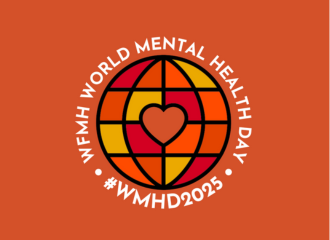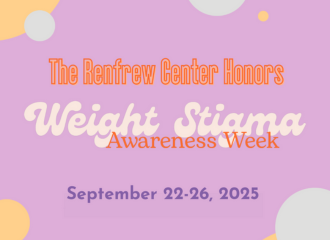Explore Categories

Pregnancy & Eating Disorders: A Tangled Web
What happens when eating disorders and pregnancy overlap? We look at the data, risk factors and complications.
The Renfrew Center Publishes Groundbreaking Virtual and In-Person Outcome Data in Prestigious Journal, European Eating Disorder Review
Renfrew’s Research and Training Departments have published another ground-breaking article in a highly prestigious, peer-reviewed journal.

World Mental Health Day: The Best Mental Health Learning Resources [Updated for 2025]
World Mental Health Day helps raise awareness about critical mental health agendas. Here are the best learning and support resources in 2025.

Polycystic Ovarian Syndrome (PCOS) & Eating Disorders: What’s the Connection?
People with polycystic ovarian syndrome (PCOS) are more likely to develop an eating disorder. We look at theories on why the connection exists and what to do about it.

Weight Stigma Awareness Week: The Best Mental Health Learning Resources [Updated for 2025]
Weight Stigma Awareness Week is an annual event dedicated to raising awareness about the issue of weight-based discrimination and prejudice.

Lesser-Known Eating Disorders: A Brief Guide to ARFID, OSFED & Non-Clinical EDs
What are the lesser-known eating disorders? What symptoms do they typically present? In this post, we break down everything you need to know.

Student Medical Leave for Eating Disorder Treatment: How to Know It’s Time [UPDATED]
Making the decision to take a medical leave from school to seek eating disorder treatment can be challenging and overwhelming, but also life-altering and life-saving.

Genetics & Eating Disorders: 10 Tips to Reduce Risk (Even If You Have a Family History)
Are eating disorders caused by genetics or the environment? We break down what the research says and offer tips for what to do about it.

Intuitive Eating & Eating Disorders: Principles, Treatment Challenges & 3 Ways to Implement
Intuitive eating plays a big role in eating disorder treatment and involves a nuanced approach to healing one’s relationship with food. Here’s the breakdown.
Reach Out to Us
Talk with a Program Information Specialist at the number above to learn more about our
services and to schedule an assessment. Or, fill out the information below and we will contact you.
